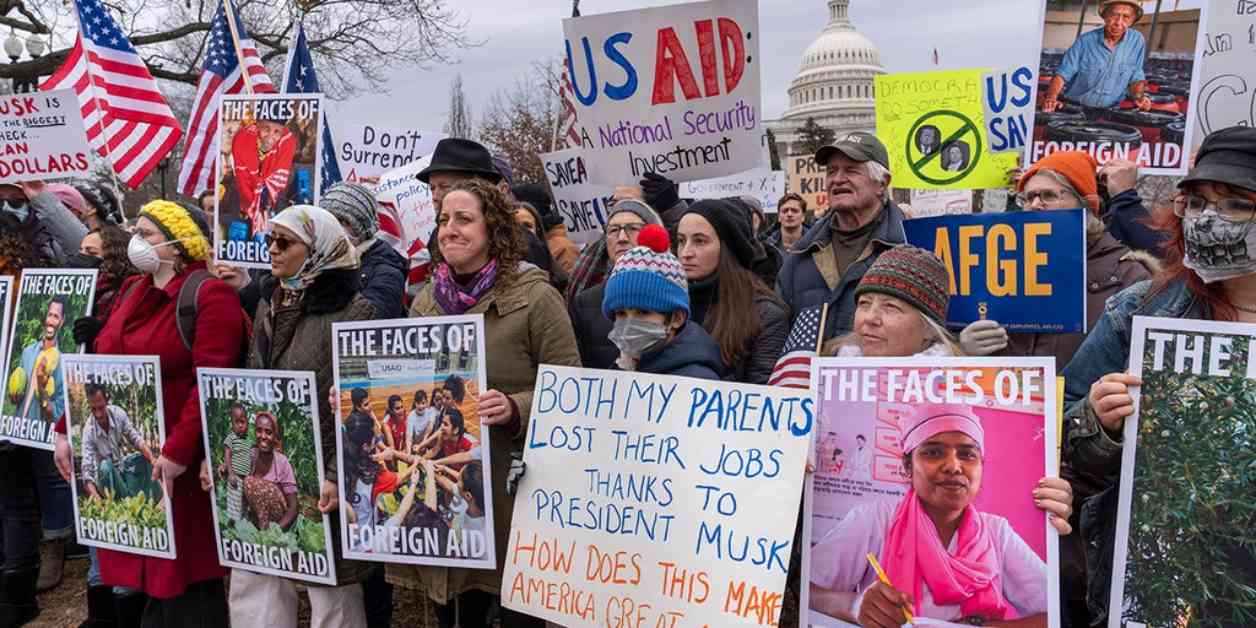Federal workers in Washington, D.C., are facing unprecedented job insecurity due to budget cuts and program terminations initiated by President Donald Trump and the Department of Government Efficiency (DOGE), led by Elon Musk. The sharp decline in job stability has sent shockwaves across the city, causing panic and uncertainty among government employees and residents alike.
The impact of these budget cuts is far-reaching, with nearly all USAID workers facing layoffs as a result of the DOGE’s efforts to reduce government spending. The abrupt nature of these changes has left many government workers reeling, unsure of their future in a city that has long been synonymous with stability and security.
Yesim Sayin, the executive director of the D.C. Policy Center, described the current climate in D.C. as “a very difficult time,” highlighting the profound uncertainties that are plaguing the region. The city’s economy is closely intertwined with federal government spending, making the current wave of layoffs and buyouts particularly devastating for the local workforce.
The situation has created a sense of economic paranoia among workers in the nation’s capital, a stark departure from the longstanding predictability of federal paychecks and government contracts. Michael Schaeffer, a senior editor at Politico, captured the prevailing sentiment in his column, titled “‘Are We Detroit Now?’: Trump’s Cuts Panic Washington,” noting the unprecedented levels of anxiety and fear that have gripped the city.
Legal Battles and Uncertain Futures
As the administration pushes forward with its mandate for federal workers to accept buyouts or return to work in person, legal challenges have emerged. The American Federation of Government Employees (AFGE) and two other unions have filed a complaint, arguing that the buyout offer is arbitrary and violates federal law. Despite this pushback, over 40,000 workers have already agreed to the buyout, signaling the deep sense of unease that pervades the federal workforce.
A federal judge recently intervened, delaying the administration’s deadline for workers to accept the buyout or resign, providing a temporary reprieve for those grappling with uncertain futures. The legal battles and bureaucratic wrangling underscore the high stakes involved in this wave of job insecurity, with workers caught in the crossfire of political decisions and budget cuts.
Expert Insights and Personal Stories
To gain further perspective on the situation, Schaeffer spoke with Ron Fournier, a former D.C. journalist who relocated to Detroit during the city’s economic downturn. Fournier drew parallels between the current climate in D.C. and the challenges faced by Detroit during the collapse of the auto industry, emphasizing the long-lasting impact of such upheavals on a city’s workforce and psyche.
Fournier’s insights shed light on the emotional toll of job insecurity and economic instability, highlighting the deep-seated fears and uncertainties that pervade communities facing layoffs and restructuring. The sense of loss and disorientation experienced by workers in D.C. mirrors the struggles of other cities grappling with economic downturns, underscoring the universal nature of these challenges.
As federal workers in Washington, D.C., navigate this period of unprecedented job insecurity, the city’s future hangs in the balance. The ramifications of these budget cuts and program terminations extend far beyond individual workers, shaping the cultural and economic landscape of the nation’s capital. The road ahead remains uncertain, with workers and residents alike bracing for the impact of ongoing changes in government spending and policy.


